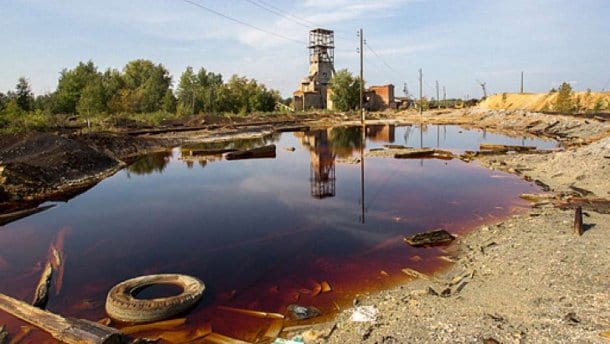Russia again disseminates fake news about Ukraine’s involvement in the environmental catastrophe in Donbas and on the marching with the annexed Crimea through the statements of its Foreign Ministry. This time the Russian Foreign Ministry suddenly became concerned about the alleged rising incidence of infectious diseases in the occupied Crimea-neighbouring Kherson region and unreasonably declares Ukraine’s responsibility for the deterioration of the ecological situation, associating it with cessation of water supplies from Ukraine to the Crimean peninsula.
The successful visit of the newly elected President of Ukraine to France and Germany and negotiations with leaders of these two states, during which they declared their full support for Ukraine’s Euro-Atlantic aspirations, confirmed their commitment to uphold sanctions against Russia and highlighted the futility of direct negotiations with leaders of the so-called Luhansk/Donetsk Peoples’ Republics probably became the catalyst for another surge in Russian propaganda aimed at discrediting Ukraine. In addition, Ms. Merkel made it quite clear that sanctions would be upheld until Crimea deoccupation, and all the responsibility for the deterioration of the human rights situation on the peninsula rests entirely with the Russian Federation. Thus, Kremlin master’s hopes for prompt lifting of sanctions finally shattered. That is why Russia chose the strategy of attacking the victim and accusing him of all capital sins to distract the international community from the dead-locked situation with illegally detained Ukrainian seamen (the deadline for implementation of the International Tribunal’s decision is June 25), of mass arrests of the Crimean Tatars and deterioration of the environmental situation in the annexed Crimea (new emissions of toxic substances at Titan plant).
Moscow, apparently, hoped that the new Ukrainian authorities would make considerable concessions in negotiations with separatists and transition to business as a usual approach in Crimea treatment. Putin hoped to save face, expecting to exchange the release of Ukrainian sailors (presenting it as a goodwill gesture) for Ukraine’s concessions in the negotiation process on Donbass.
In addition, Kremlin is probably mad about the agreement reached between Ukraine and France on the construction of a modern desalination plant in Mariupol.
It is expected that this project will provide the people from the southern Ukraine with high-quality drinking water, and most importantly, eliminate one of the levers of Moscow’s influence on the situation in the region, as far as the situation with water supply interruptions arose there due to the Russian war in the Donbas and establishment of the so-called Luhansk/Donetsk Peoples’ Republics.
Russias attempts to blame Ukraine for damage to Donbas critical infrastructure have not been crowned with success. The OSCE monitoring mission keeps recording violations of the ceasefire and intensification of shelling from prohibited weapons by the Russian-supported militants.
At the same time, Russia’s insistence on accusing Ukraine of provoking an environmental disaster within the uncontrolled territory of Donbass (allegedly due to shelling by the Ukrainian military) and within the southern regions bordering on the occupied Crimea (allegedly due to cessation of water supplies to the peninsula through the North Crimea channel), which may lead to the spread of infectious diseases – is an evidence of Russia’s forthcoming provocations against Ukraine using chemical and bacteriological weapons.
Moreover, Kremlin has already gained similar experience while using unknown toxic agents of mass destruction: case of Litvinenko followed by Skripal poisoning in Britain, use of chemical weapons against the anti-Assad movement in Syria. The purpose of such a special operation is increasing international pressure on Ukraine along with restoration of water supply to occupied Crimea at the expense of Ukraine, as well as destabilization of situation within the state, raising peoples’ discontent, discreditation of the state authorities ahead of parliamentary elections in order to strengthen the pro-Russian forces’ positions.

